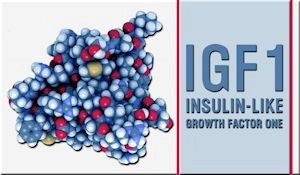Understanding Bipolar Disorder
Bipolar disorder, a complex mental health condition characterized by extreme mood swings, affects millions of Americans, including a significant number of men. This disorder can manifest in episodes of mania, where individuals experience heightened energy and euphoria, and depression, marked by profound sadness and lethargy. For American men, understanding and managing bipolar disorder is crucial, as it can profoundly impact their personal and professional lives.
The Impact of Bipolar Disorder on Men
Men with bipolar disorder may face unique challenges. Societal expectations of masculinity can make it difficult for them to seek help or openly discuss their mental health struggles. This reluctance can lead to delayed diagnosis and treatment, exacerbating the condition. Additionally, men might experience bipolar disorder differently, with some studies suggesting they are more likely to exhibit irritability and aggression during manic episodes, which can strain relationships and lead to legal issues.
Treatment Options for Bipolar Disorder
Effective management of bipolar disorder typically involves a combination of medication, psychotherapy, and lifestyle adjustments. For American men, finding the right treatment plan is essential for maintaining stability and improving quality of life.
Medication
Medications are a cornerstone of bipolar disorder treatment. Mood stabilizers, such as lithium, are often prescribed to prevent manic and depressive episodes. Anticonvulsants like valproate and carbamazepine can also serve as mood stabilizers. Antidepressants may be used cautiously, often in combination with mood stabilizers, to manage depressive symptoms. Atypical antipsychotics can be effective for both manic and depressive phases. It's important for men to work closely with their healthcare providers to find the right medication regimen, as individual responses can vary.
Psychotherapy
Psychotherapy plays a vital role in managing bipolar disorder. Cognitive-behavioral therapy (CBT) can help men identify and change negative thought patterns and behaviors. Interpersonal and social rhythm therapy (IPSRT) focuses on stabilizing daily routines and improving interpersonal relationships, which can be particularly beneficial for men who struggle with the social aspects of their disorder. Family-focused therapy can also be helpful, as it involves loved ones in the treatment process, fostering a supportive environment.
Lifestyle Adjustments
Lifestyle changes are crucial for managing bipolar disorder. Regular sleep patterns, a balanced diet, and consistent exercise can help stabilize mood. For American men, who may be more likely to engage in high-risk behaviors during manic episodes, developing healthy coping mechanisms is essential. Avoiding alcohol and drugs, which can trigger or worsen episodes, is also important. Engaging in hobbies and activities that promote relaxation and stress relief can further support mental health.
Support Systems and Resources
Building a strong support system is vital for men with bipolar disorder. This can include family, friends, support groups, and mental health professionals. Organizations like the National Alliance on Mental Illness (NAMI) offer resources and support specifically tailored for men. Online forums and communities can also provide a sense of connection and understanding.
The Role of Education and Advocacy
Education and advocacy are key components of managing bipolar disorder. Men should educate themselves about the condition, its symptoms, and treatment options. Advocacy can involve speaking out about mental health issues, reducing stigma, and encouraging other men to seek help. By becoming advocates, men can help create a more supportive environment for themselves and others.
Conclusion
For American men, managing bipolar disorder requires a multifaceted approach that includes medication, psychotherapy, lifestyle adjustments, and a strong support system. By understanding the unique challenges they face and seeking appropriate treatment, men can achieve greater stability and improve their overall well-being. Embracing education and advocacy can further empower them to navigate their journey with bipolar disorder successfully.
Contact Us For A Fast And Professional Response

- Understanding and Treating Erectile Dysfunction: A Comprehensive Guide for American Men [Last Updated On: March 2nd, 2025] [Originally Added On: March 2nd, 2025]
- Men's Health and Supplements: Benefits, Types, and Safe Usage for American Males [Last Updated On: March 17th, 2025] [Originally Added On: March 17th, 2025]
- Gut Health's Impact on American Males: Microbiome, Mental Health, and Disease Prevention [Last Updated On: March 17th, 2025] [Originally Added On: March 17th, 2025]
- Osteoporosis in Men: Understanding Risks and Enhancing Bone Health Strategies [Last Updated On: March 18th, 2025] [Originally Added On: March 18th, 2025]
- Top Fitness Trends Transforming American Men's Health and Wellness [Last Updated On: March 18th, 2025] [Originally Added On: March 18th, 2025]
- Sleep Apnea in American Men: Symptoms, Risks, and Management Strategies [Last Updated On: March 19th, 2025] [Originally Added On: March 19th, 2025]
- Mental Health Stigma in American Men: Impact and Strategies for Change [Last Updated On: March 20th, 2025] [Originally Added On: March 20th, 2025]
- Understanding and Overcoming Male Infertility: Causes, Diagnosis, and Treatment Options [Last Updated On: March 20th, 2025] [Originally Added On: March 20th, 2025]
- Meditation's Rise in U.S.: Enhancing Men's Mental Health and Resilience [Last Updated On: March 21st, 2025] [Originally Added On: March 21st, 2025]
- Stress and Heart Health in American Men: Impacts and Management Strategies [Last Updated On: March 21st, 2025] [Originally Added On: March 21st, 2025]
- Hydration's Vital Role in American Men's Health and Performance [Last Updated On: March 21st, 2025] [Originally Added On: March 21st, 2025]
- Exercise: A Vital Strategy for American Men Managing Diabetes [Last Updated On: March 21st, 2025] [Originally Added On: March 21st, 2025]
- Physical Activity: A Vital Tool for Cancer Prevention in American Men [Last Updated On: March 21st, 2025] [Originally Added On: March 21st, 2025]
- Strength Training Benefits for American Men: Physical, Mental, and Metabolic Health [Last Updated On: March 21st, 2025] [Originally Added On: March 21st, 2025]
- Work-Life Balance: Key to American Men's Health and Well-being [Last Updated On: March 22nd, 2025] [Originally Added On: March 22nd, 2025]
- Effective Strategies for American Men to Quit Smoking and Improve Health [Last Updated On: March 22nd, 2025] [Originally Added On: March 22nd, 2025]
- Understanding and Managing Allergies in Men: Strategies for Health and Well-being [Last Updated On: March 22nd, 2025] [Originally Added On: March 22nd, 2025]
- Obesity and Cancer Risks in American Men: Insights and Prevention Strategies [Last Updated On: March 23rd, 2025] [Originally Added On: March 23rd, 2025]
- Swimming Boosts Men's Health: Cardiovascular, Muscle, Weight, and Mental Benefits [Last Updated On: March 24th, 2025] [Originally Added On: March 24th, 2025]
- Promoting Men's Mental Health: The Importance of Regular Screening in America [Last Updated On: March 24th, 2025] [Originally Added On: March 24th, 2025]
- Managing Anxiety in American Men: Tools, Techniques, and Holistic Approaches [Last Updated On: March 24th, 2025] [Originally Added On: March 24th, 2025]
- Effective Depression Treatment Options for American Men: Therapy, Medication, and Lifestyle [Last Updated On: March 24th, 2025] [Originally Added On: March 24th, 2025]
- Tai Chi: Enhancing Health and Wellness for American Men [Last Updated On: March 24th, 2025] [Originally Added On: March 24th, 2025]
- Alcohol's Impact on Liver Health: A Guide for American Males [Last Updated On: March 24th, 2025] [Originally Added On: March 24th, 2025]
- Varicose Veins in American Men: Causes, Symptoms, and Treatment Options [Last Updated On: March 25th, 2025] [Originally Added On: March 25th, 2025]
- Asthma in Men: Symptoms, Management, and Lifestyle Impact [Last Updated On: March 25th, 2025] [Originally Added On: March 25th, 2025]
- Caffeine's Multifaceted Impact on American Men's Health: Benefits and Risks [Last Updated On: March 25th, 2025] [Originally Added On: March 25th, 2025]
- Mental Health Days: Essential for American Men's Well-Being and Productivity [Last Updated On: March 25th, 2025] [Originally Added On: March 25th, 2025]
- Sleep and Weight Management: A Guide for American Males [Last Updated On: March 25th, 2025] [Originally Added On: March 25th, 2025]
- Gout in American Men: Causes, Symptoms, and Effective Management Strategies [Last Updated On: March 25th, 2025] [Originally Added On: March 25th, 2025]
- High Cholesterol in American Men: Risks, Impacts, and Management Strategies [Last Updated On: March 25th, 2025] [Originally Added On: March 25th, 2025]
- Dietary Strategies for Enhancing Prostate Health in American Men [Last Updated On: March 25th, 2025] [Originally Added On: March 25th, 2025]
- Kidney Stones in American Men: Prevention, Management, and Treatment Strategies [Last Updated On: March 25th, 2025] [Originally Added On: March 25th, 2025]
- Plant-Based Diets: Health Benefits for American Men [Last Updated On: March 26th, 2025] [Originally Added On: March 26th, 2025]
- Dietary Fiber: Essential for Digestive Health, Weight Management, and Disease Prevention in Men [Last Updated On: March 26th, 2025] [Originally Added On: March 26th, 2025]
- Eye Health Crucial for American Men: Exams Detect Early Disease Signs [Last Updated On: March 26th, 2025] [Originally Added On: March 26th, 2025]
- Dental Health's Crucial Role in Men's Overall Well-being and Disease Prevention [Last Updated On: March 26th, 2025] [Originally Added On: March 26th, 2025]
- Hemorrhoids in Men: Causes, Symptoms, and Effective Management Strategies [Last Updated On: March 26th, 2025] [Originally Added On: March 26th, 2025]
- Stroke Risks in American Men: Understanding and Prevention Strategies [Last Updated On: March 26th, 2025] [Originally Added On: March 26th, 2025]
- Annual Physicals: Vital for Men's Health and Disease Prevention in the U.S. [Last Updated On: March 26th, 2025] [Originally Added On: March 26th, 2025]
- Men's Mental Health in the Workplace: Challenges and Strategies for Support [Last Updated On: March 27th, 2025] [Originally Added On: March 27th, 2025]
- Stress and Digestive Health in American Males: Insights and Management Strategies [Last Updated On: March 27th, 2025] [Originally Added On: March 27th, 2025]
- Cycling Benefits for American Men: Health, Fitness, and Well-being [Last Updated On: March 27th, 2025] [Originally Added On: March 27th, 2025]
- Seasonal Affective Disorder in American Men: Symptoms, Impact, and Holistic Treatment Approaches [Last Updated On: March 28th, 2025] [Originally Added On: March 28th, 2025]
- Social Connections: Enhancing Mental Health Resilience in American Men [Last Updated On: March 28th, 2025] [Originally Added On: March 28th, 2025]
- Proactive Health Strategies for American Men: Screenings, Lifestyle, and Support [Last Updated On: March 29th, 2025] [Originally Added On: March 29th, 2025]
- Pilates Benefits for American Men: Core Strength, Flexibility, and Mental Health [Last Updated On: March 29th, 2025] [Originally Added On: March 29th, 2025]
- Hiking Benefits for Men: Enhancing Physical, Mental, and Social Health [Last Updated On: March 29th, 2025] [Originally Added On: March 29th, 2025]
- Arthritis in American Men: Prevention, Management, and Mental Health Strategies [Last Updated On: March 30th, 2025] [Originally Added On: March 30th, 2025]
- Insomnia's Impact on Men's Health: Causes, Strategies, and Solutions [Last Updated On: March 30th, 2025] [Originally Added On: March 30th, 2025]
- Diet and Heart Health: Essential Guide for American Men [Last Updated On: March 31st, 2025] [Originally Added On: March 31st, 2025]
- Pollution's Impact on American Men: Health Risks and Preventive Strategies [Last Updated On: March 31st, 2025] [Originally Added On: March 31st, 2025]
- Migraines in Men: Symptoms, Triggers, and Effective Management Strategies [Last Updated On: March 31st, 2025] [Originally Added On: March 31st, 2025]
- Antioxidants: Vital for American Men's Health and Disease Prevention [Last Updated On: April 1st, 2025] [Originally Added On: April 1st, 2025]
- Men's Mental Health: Breaking Stigma Through Education and Support [Last Updated On: April 4th, 2025] [Originally Added On: April 4th, 2025]
- Rowing: A Comprehensive Fitness Solution for American Men's Health [Last Updated On: April 5th, 2025] [Originally Added On: April 5th, 2025]
- Martial Arts: Enhancing Men's Health and Well-being in America [Last Updated On: April 7th, 2025] [Originally Added On: April 7th, 2025]
- Alcohol Use and Mental Health: A Critical Issue Among American Males [Last Updated On: April 9th, 2025] [Originally Added On: April 9th, 2025]
- Managing Panic Attacks: Strategies and Insights for American Men's Health [Last Updated On: April 9th, 2025] [Originally Added On: April 9th, 2025]
- Skin Cancer Risks and Prevention Strategies for American Men [Last Updated On: April 9th, 2025] [Originally Added On: April 9th, 2025]
- Community Influence on Men's Health: Social Ties, Resources, and Cultural Factors [Last Updated On: April 9th, 2025] [Originally Added On: April 9th, 2025]
- Back Pain in American Men: Causes, Prevention, and Holistic Management Strategies [Last Updated On: April 9th, 2025] [Originally Added On: April 9th, 2025]
- Men's Hearing Health: Risks, Prevention, and Technological Solutions [Last Updated On: April 11th, 2025] [Originally Added On: April 11th, 2025]
- Technology's Impact on Men's Health: Fitness, Telemedicine, and Mental Wellness in the U.S. [Last Updated On: April 11th, 2025] [Originally Added On: April 11th, 2025]
- IBS in American Men: Symptoms, Diagnosis, and Management Strategies [Last Updated On: April 11th, 2025] [Originally Added On: April 11th, 2025]
- Running's Multifaceted Health Benefits for American Men: A Comprehensive Guide [Last Updated On: April 12th, 2025] [Originally Added On: April 12th, 2025]
- Essential Vitamins for American Men's Health and Vitality [Last Updated On: April 13th, 2025] [Originally Added On: April 13th, 2025]
- Obesity and Diabetes in American Men: Risks, Impacts, and Management Strategies [Last Updated On: April 13th, 2025] [Originally Added On: April 13th, 2025]
- Transforming Men's Health: Tailored Mental Health Awareness Campaigns for American Men [Last Updated On: April 14th, 2025] [Originally Added On: April 14th, 2025]
- Diet and Mental Health: Nutritional Strategies for American Males' Well-being [Last Updated On: April 15th, 2025] [Originally Added On: April 15th, 2025]
- CrossFit: Boosting American Men's Health and Fitness Holistically [Last Updated On: April 16th, 2025] [Originally Added On: April 16th, 2025]
- Mental Health First Aid: Empowering American Men to Overcome Stigma and Seek Support [Last Updated On: April 16th, 2025] [Originally Added On: April 16th, 2025]
- Joint Pain in Men: Causes, Prevention, and Management Strategies [Last Updated On: April 17th, 2025] [Originally Added On: April 17th, 2025]
- Basketball's Impact on Men's Health: Fitness, Mental Well-being, and Community Benefits [Last Updated On: April 18th, 2025] [Originally Added On: April 18th, 2025]
- Soccer's Impact on Men's Health: Cardiovascular, Mental, and Physical Benefits [Last Updated On: April 19th, 2025] [Originally Added On: April 19th, 2025]
- Lung Cancer in American Men: Risks, Prevention, and Early Detection Strategies [Last Updated On: April 19th, 2025] [Originally Added On: April 19th, 2025]
- Family Support Enhances Health and Wellbeing in American Men: A Comprehensive Analysis [Last Updated On: April 19th, 2025] [Originally Added On: April 19th, 2025]
- Socioeconomic Factors Shaping Health Outcomes for American Men: Challenges and Strategies [Last Updated On: April 21st, 2025] [Originally Added On: April 21st, 2025]
- Rising Mental Health Awareness Among U.S. Males: Breaking Stigma and Fostering Support [Last Updated On: April 23rd, 2025] [Originally Added On: April 23rd, 2025]
- Prostate Health Guide: Understanding, Managing, and Treating Conditions in American Men [Last Updated On: April 24th, 2025] [Originally Added On: April 24th, 2025]

















